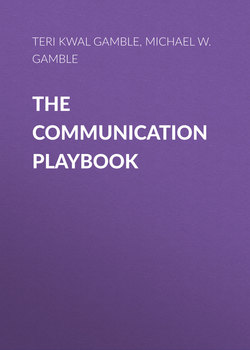Читать книгу The Communication Playbook - Teri Kwal Gamble - Страница 90
На сайте Литреса книга снята с продажи.
More Aggressive Communication.
ОглавлениеCo-culture members who use a more aggressive communication approach defend their own beliefs and traditions with intensity and may be perceived by members of the dominant culture as “hurtfully expressive” or “self-promoting.” They make it difficult for members of the dominant culture to ignore their presence or pretend they do not exist.33 They adopt this strategy to demarginalize themselves and actively participate in the world known to members of the dominant culture. In the early years of Act Up, a gay rights organization, members employed this approach (Table 2.1).
Table 2.1
Skill Builder
Assessing Ethnocentrism Versus Cultural Relativism
Evaluate your culturally ethnocentric or relativistic tendencies. Label the following statements as true or false, providing an example of a behavior you used when either interacting with or avoiding interacting with a member of another culture.
1 I go out of my way to be with people who are like me.
2 I can cooperate with people like me, but I find it difficult to cooperate with people unlike me.
3 I trust those who are like me more freely than I trust those who are different from me.
4 I am less fearful when I am around people like me than when I am around people unlike me.
5 I am much more apt to blame people unlike me for causing trouble than I am to blame people like me.
6 I believe that people unlike me should make an effort to become more like me.
What do your answers and examples reveal? Are there some cultures different from your own that you are more comfortable with than others? What steps are you willing to take, if any, to minimize the potentially negative effects of ethnocentrism?
Understanding both the general culture and its co-cultures is essential for effective communication. Merely knowing another’s language is not enough. It also is necessary to become aware of the norms and rules of the culture or co-cultures that might influence the nature of interactions you have with its members. It is important to understand the ways culture shapes interaction.
Exploring Diversity
Understanding Other Cultures
Make a list of individuals whose cultural backgrounds differ from your own and with whom you have communicated recently. How many of the following questions can you answer about each person on your list?
1 How do the individual’s feelings about socialization differ from your own?
2 How does the individual’s concept of self compare with yours?
3 To what extent do the individual’s values and attitudes differ from yours?
4 Which of your behaviors has the individual had difficulty understanding or accepting? Which of his or her behaviors have you have difficulty with?
5 Which of the individuals you interacted with did you find to be most like you? Most unlike you? Can you identify your points of similarity and difference?
6 To what extent was the individual more cooperative or competitive than you?
7 In what ways did the individual’s use of verbal language differ from your own?
8 In what ways did the individual’s nonverbal behavior differ from your own?
9 How did the individual’s treatment of time and space differ from your own?
10 In what ways did the individual’s thinking processes differ from yours?
For those questions you cannot answer, take the time to conduct some research in an effort to answer them.
